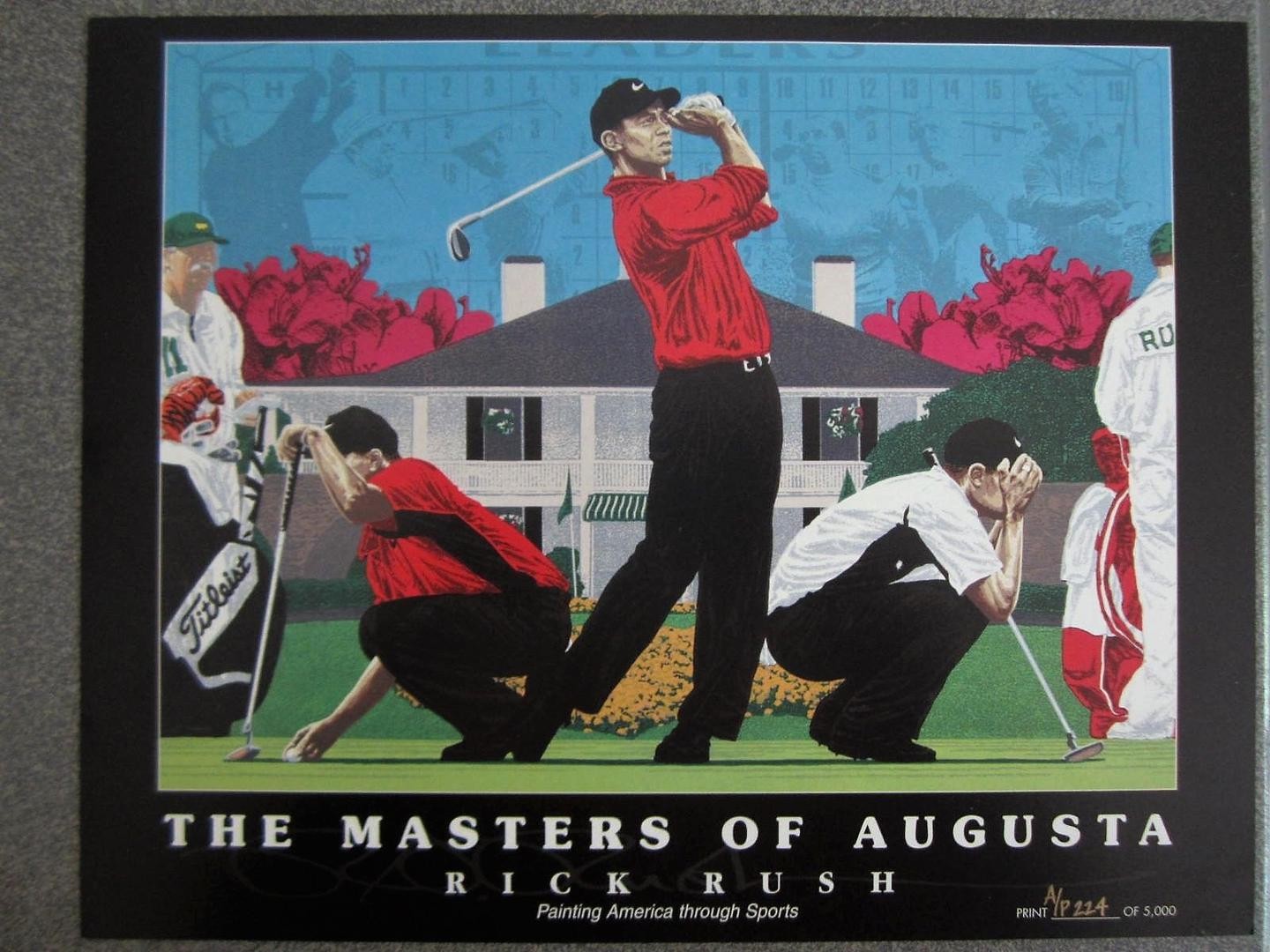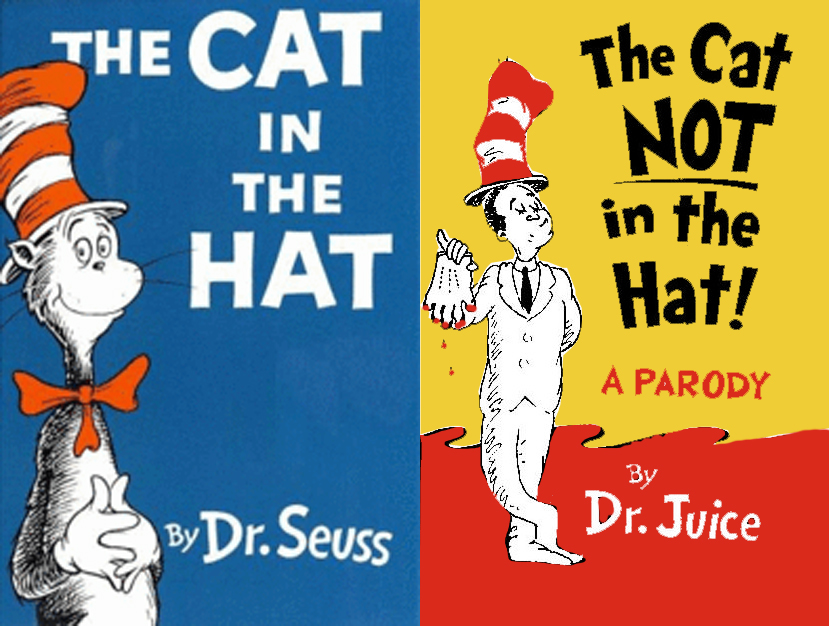Little Heroes Book under IP dispute
-
A victory for fan art Tiger Woods loses appeal in "right of publicity" case. QUOTE: The Sixth Circuit Court of Appeals found that the work was an “informational and creative” form of “expression which is entitled to the full protection of the First Amendment.”
-
Another article about winning this Tiger Woods trademark case Artist wins right to distribute work bearing golfer’s image
-
These powerful people are blocking others from creating art from what they see and are influenced by in pop culture. To me drawing and taking pictures is the same expression as speaking words from my mouth. They are twisting the law to their ends. Laws are malleable and can be viewed from both sides. DISCLAIMER: I'm not a legal expert and not offering legal advice. Seek out a real lawyer if you get a nasty letter through the post or email box Just my opinion after being financially bullied into not taking action in the past.
This is an important statement for artists to remember:
Professor Diane Zimmerman, one of the nation’s (USA) experts on free expression and intellectual property law, pleased with the appellate court’s decision, said Woods’ suit is an example of recent efforts by celebrities to “expand the reach” of their rights to control and profit from their images. The brief she authored had argued that “overly protectionistic and unduly broad property claims can thwart the creation of new works and damage important First Amendment values.”
-
It's interesting that I saw this post on the same day that I read another news story about fair use. There has been an ongoing lawsuit about the book "Oh, the Places You'll Boldly Go!" which is a Star Trek themed book that mimics the style of "Oh, the Places You'll Go" and other Dr. Seuss books. Just the other day the judge dismissed the lawsuit and said that the book was a fair use. As has been said in this thread, fair use is complex (the judge wrote 33 pages explaining why she decided it was a fair use).
The court decision is a good example of how courts decide whether some is a fair use or not. The decision can be found here if you are super interested: https://www.documentcloud.org/documents/5766629-Seuss.html. The most important points were that the Star Trek book was "transformative" because all the writing and illustrations that were copied from Dr. Seuss were always changed to be Star Trek-centric; and the judge found that the Star Trek book would not likely harm the market for Dr. Seuss books. Those are just two of the four factors in the fair use analysis; the court said that the other two didn't weigh heavily in either direction.
As far as the Little Heroes book, it seems like it is definitely transformative, since the characters have all been creatively modified. So that would likely weigh in favor of fair use. But the market harm factor could weigh in the other direction if there are already Marvel publications with child versions of their heroes.
-
@sigross Interesting case. I read your post thinking it was a recent case but this is from 2003 (emphasis for those just tuning in)
Because decisions like this are not universal and are decided on a case by case basis, I also wanted to see the image. Which I've included below:
And to provide a counter point, I came across this article as I was googling the image:
This paper argues that the court's logic in this case was flawed as it pertained to Rick Rush's First Amendment defense.
Lot of reading but I'm intrigued by the judgement against Wood's trademark infringement claim. Basically Woods was claiming that the print make it look like he endorsed the image -- which is essentially what trademark protection provides.
But the court determined that although Woods had trademarked "TIGER WOODS" that applied only to the words and not to his face.
So that's super interesting!
As for the first amendment and the message Rush claims to communicate through this piece -- I would have to read more and dig into the details, but I tend to disagree with the article. I would say there is an argument for creativity in the Tiger Woods print.
BUT what I do take away from this is that if you are going to create and sell artwork of celebrities or intellectual property that you don't have license/permission to -- you'd better have a REALLY solid handle on the argument why you are doing so.
-
@DLArmantrout Great reference! Now, for fun check out this Fair Use Defense via Parody case that went against the infringer:
https://www.ipwatchdog.com/2017/04/16/cat-not-in-the-hat-dr-seuss-o-j-simpson-murder-trial/id=81868/

Condensed Version:
The district court found that the Dr. Juice book infringed Seuss copyrights. On appeal, the creators of Dr. Juice claimed fair use based on parody. The Ninth circuit disagreed ruling that the Dr. Juice book was merely a retelling of the OJ murder trial:"Although The Cat NOT in the Hat! does broadly mimic Dr. Seuss' characteristic style, it does not hold his style up to ridicule. ... [The creators of Dr. Juice] merely use the Cat's stove-pipe hat, the narrator ("Dr. Juice), and the title (The Cat NOT in the Hat!) "to get attention" or maybe even "to avoid the drudgery in working up something fresh."
I take this to mean that it is not merely up to an artist to change something -- but to change something for a very good and specific reason that actively comments on the original work.
-
@davidhohn Thanks, very interesting - The Cat NOT in the Hat seems to have a lot of the same things going for it as Oh, the Places You'll Boldly Go. I wonder if the opinions in these two cases could be reconciled! Like you said, a "parody" must comment on the original work. Usually the point of a parody is to make fun of the original work itself. However, you don't necessarily have to be making a "parody" of the original work for your work to be a fair use. In fact, in the judge's opinion for Oh, the Places You'll Boldly Go, the judge came right out and said it is not a parody, but nevertheless it was still transformative enough. So, I guess the take away is you can either make a parody, which means you are making fun of the original work or otherwise commenting on it somehow, or you can just transform it in some other creative way. As long as the other factors of fair use don't weigh too heavily against you.
-
@DLArmantrout Check out this blog post about the "Boldly Go" case.
Interesting reading! A nice play by play of the factors considered in a Fair Use Defense.https://fanfilmfactor.com/2019/03/12/take-that-dr-seuss-trek-mash-up-is-legally-fair-use/#more-13934
That said, I read this with my customary sense of caution.
Did the judge just declare open season on independent artists who will now have their work ripped off because a staff designer at a large corporation "transformed" them? (Target is one company I've research that blatantly does this)
Or will thousands of less creative artists (than David Gerrold and Ty Tempelton author and illustrator of "Boldly Go") read this ruling and confidently start pushing out their infringements because "Hey, I changed it!"?
I'm always reminded that business works both ways. It's finding that balance that's the trick.
Edit: I checked your profile and see that you are an IP attorney. Can I ask what area you specialize in?
-
@Whitney-Simms Disney was definitely part of the lobbying for long, long, .... long IP ownership times.
-
@davidhohn I specialize in patents, particularly for chemical engineering related inventions. It's not something that comes up often on these forums, so I tend to chime in when people are talking about copyrights

I don't have very much practical experience with copyrights except for a few law school classes, but I am interested in it. I am always interested in your posts on the subject because you seem to know a lot about it.
I'm not sure if I like the outcome of the Boldly Go case or not? I wonder if the authors got a license from the owners of the Star Trek copyright. If not, I'm not sure how I feel about the prospect of anyone being able to take two things that they don't own and mash them up without having permission from either rights holder.
-
@davidhohn yes it's good to see the print. I remembered the story breaking years ago and it taking forever to go through court. One of the reasons I think copyright could do with an update is concluding cases quicker. Do you think making work that is limited editions or original art can have an effect on the outcome, if it goes to court?
-
@DLArmantrout Really interesting! I am always amazed by how specialized each industry can be. Not that I should be surprised -- illustration is full of all kinds of niches.
My knowledge on copyrights is due to a personal/professional interest in it. No formal training, just a lot of late night reading of IP law blogs. With that in mind I always want to be careful to note that mine are only opinions.
As for the Boldly Go case -- from what I gathered CBS/Star Trek have deemed this a tolerated infringement. They haven't issued a takedown notice for the book.
I do wonder about defending mash-ups under the Fair Use Defense though. The judge felt in this case that it was "sufficiently" creative. But that is arguably a personal judgment call. Would that same judge always think mashups of two IP's are creative enough to warrant protection under the Fair Use Defense?